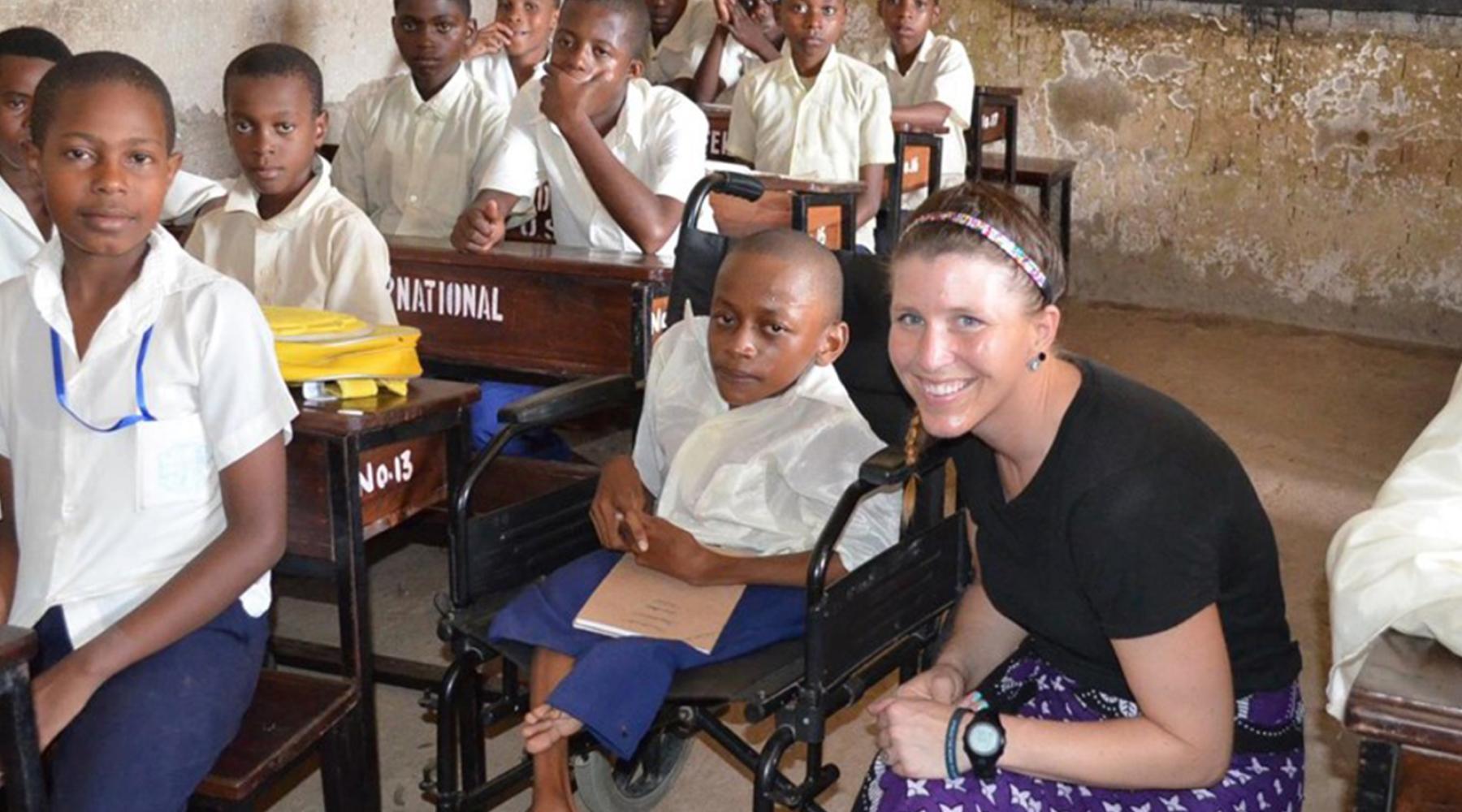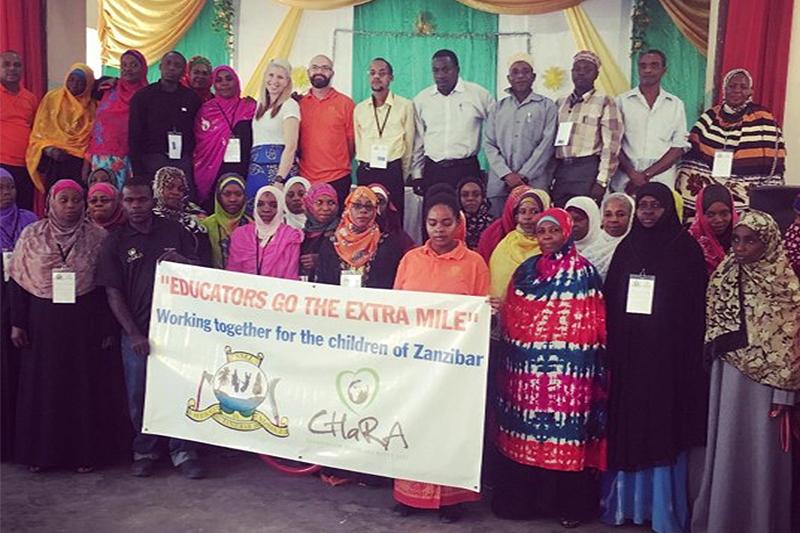
Impacting Job Prospects for Students with Disabilities
Most employers will tell you the importance of hiring employees with quality “soft skills” – the ability to communicate well, exhibit reliability and a positive attitude, and more. But, how can students with intellectual disabilities and students from underserved populations, be taught these skills in a measurable way?”
That’s the question that Kelly Clark, director of Transition and Educational Achievement at the ILR-based K. Lisa Yang and Hock E. Tan Institute on Employment and Disability, set out to answer.
“There was a lot of research discussing the importance of teaching these skills to all students, including those with disabilities. However, there was not a lot research on how to teach these skills, or a specific curriculum with an assessment for teachers to use,” Clark said.
To address this gap in the research, Clark helped develop a training and development program for high school students with disabilities such as autism. The program, called UPGRADE Your Performance, is in its fourth year of development. It has been implemented in five North Carolina schools and in a teen-to-adulthood transition program at the University of North Carolina at Charlotte.
In New York state, the Heritage Christian agency based in Rochester will begin using UPGRADE with young adults. Schools in Texas and Wisconsin are considering the curriculum.
UPGRADE is stands for the steps of the intervention: U-You evaluate yourself, P-Professional evaluates you, G-Graph both scores, R-Restate your goal and determine if you met it, A-Acknowledge what you did well, D-Decide what you need to do better, E-Execute improvements tomorrow to meet your goals
The program is based on a survey conducted with employers that identified soft skills important for entry-level employees. From these survey results, Clark helped develop a rubric for assessing students’ performance and progress developing these skills.
The early results from the implementation of these programs are promising, Clark said. “The students in the studies I completed increased their soft skills significantly after participating. “In the second study, several of the students were able to secure competitive employment.”
Moira Konrad, a professor at the Ohio State University who helped develop the UPGRADE curriculum, said, “Kelly really showed herself as a pioneer in soft skills training for youth with disabilities.”
“If employees come to the job without these skills, they are less likely to be able to remain employed or to be promoted, partly because employers and co-workers don’t see it as their responsibility to ‘train’ these skills and because these skills tend to be hard to teach and train.”
This, Konrad said, is what makes Clark’s research so crucial to the success of individuals with disabilities.
“We’ve already shown that with good instruction and on-the-job support and coaching, individuals with disabilities can learn to perform a wide range of job skills. Now we need to shift focus to learn more about how to teach these skills – the soft skills. Kelly’s curriculum does that.”
Clark has taken her expertise to Zanzibar, Tanzania, to provide professional development for local administrators who are responsible for educating students with disabilities.

Clark plans to return to Tanzania to continue her work with special education providers. She also plans to build on an initiative to help local midwives connect families of children born with disabilities to social services as early as possible.
“My life was changed by what I saw and learned there. There is so much work to be done there for people with disabilities, from mobility issues, to health and well-being, and equity in education and employment.”
Clark’s journey to where she is now started in college.
“I became interested in disabilities when I met a young boy with autism and his family. I immediately knew this was what I wanted to do with my life. I also really want to help the students no one wants to teach, the ones who some people have written off.”
Clark has a bachelor’s degree in special education, a master’s degree in school administration, curriculum and instruction, and a Ph.D. in special education with a focus on transition for students to adulthood. She began her career teaching special education for eight years to secondary school students with disabilities.
“I think many times people limit what individuals with disabilities can do and don’t see the unique abilities they have that make our world such a richer place. My former students taught me more than I ever taught them and I am passionate about ensuring they are able to achieve their goals after high school and have the same opportunities as everyone in else in all aspects of life. I hope to be able to help people see their abilities, rather than their disabilities."
Learn more about Yang-Tan Institute work focused on youth education.


